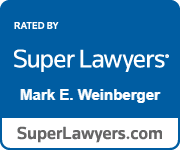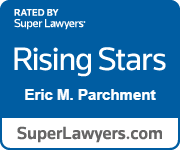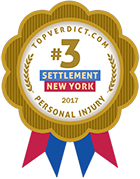Ready to Fight for You
Winning Long Island Premises Liability Cases
In order to understand your chances for winning a premises liability case, you need to understand the various aspects of the law that define the scope. This law is meant to protect persons who suffer injuries caused while on another person’s property. Such cases are usually filed by premises liability attorneys in the determination of the property owner’s liability due to the injury.
The presence of the injured person on the premises in question is important because it not only classifies what were the circumstances but also the intent of their presence on the property.
The Injured person can either be classified as:
1. An Invitee – This is a person willfully allowed to access the premises for the direct or indirect benefit of the premises owner. The Invitee is allowed access either through a straightforward invitation or through an implied interpretation. In this case, the owner of the property must make clear the existing hazards on the property in the aim or protecting the invitee from injury.
2. A licensee – This is a person invited on the property or premises for purposes that do not have to do with business or commercial gain, such reasons could be for the purposes of socializing. In this case, the property owner is liable should any negligence be determined of conditions on the property that are potentially harmful or can cause injury. The property owner is therefore responsible for informing the licensee of potential risks that could cause significant injury that would not be classified as negligible.
3. Trespasser – This person is classified as one who does not have any invitation, implied or otherwise, to be present on the property, whether the person’s intentions were unlawful or not, the owner of the premises is liable the moment they are aware of the presence of the trespasser. Prior to such knowledge, the premises owner has no responsibility to warn the trespasser or any impending risk of injury.
Responsibility of Property Owners
Generally, premises or property owners should remove any factors that might cause risks on the public sidewalk in front of their property. In the case where one sustains an injury due to injurious materials or circumstances on a public sidewalk, you would want to consult your New York premises liability attorneys to determine responsibility.
The responsibility of each premises or land owner in a premises liability case cannot be transferred, and as your premises liability attorneys will affirm; even if negligence is established through the acts of a third party, the premises owner is solely responsible.
Premises liability attorneys would generally inform you of these fundamental details. Some cases could have very complex circumstances, and the outcome may not always be as simple as you might deduce it, so it is always wise to seek the counsel of premises liability attorneys who would make the process more vivid and determine the outcome of your case.
‘Slip and fall’ cases are quite popular in premises liability cases, and are often built around the idea of negligence on or around the premise.
Getting Legal Advice from a Long Island Premise Liability Attorney
There are different specializations for personal Injury, and what you are looking for in this case is property liability attorneys who would understand the details and the technical implication of each case. In determining responsibility, there is a lot of consultation and expert advice that your premises liability attorneys will undertake, which is why if you don’t want to lose a case by a technical detail you may have missed, subscribe legal representation for your best interests.
If you were injured on another person’s property, you may have a case. Contact the Long Island premises liability attorneys at The Law Offices of Mark E. Weinberger for a free consultation. We have over 30 years of experience in obtaining results for accident victims in New York.
How Can We Help You?
Fields marked with an * are required
"*" indicates required fields




